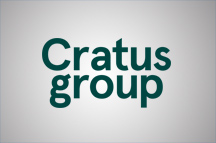The first Thursday of May never fails to excite the English political enthusiast. There are fewer elections than we would normally enjoy this year due to the cancellation of county elections in the areas that have been accepted onto the devolution priority programme.
While most of the council election counts will be held over the course of Friday the big political news overnight will be the results of the Runcorn and Helsby by-election and the four mayoral races.
The parliamentary by-election result will be important for the main parties and will give us a clear indication of how well or poorly the Labour, Conservative and Reform parties are faring in the court of public opinion. A win for Reform will be a crushing blow to the Prime Minister and to Kemi Badenoch but it will make no difference to current parliamentary arithmetic. Sir Keir Starmer will still have a thumping majority and the numbers to drive through legislation.
The four mayoral races will be equally as consequential in terms of identifying voting trends but crucially, they will give real power to the four winners. A day out from election day there is all to play for in three of the four races. In Greater Lincolnshire it would appear that the race is run for all the candidates expect for Dame Andrea Jenkyns, the former Tory MP who is now standing for Nigel Farage’s Reform UK. Lincolnshire has consistently been the country’s most Eurosceptic county and voted heavily in favour of Leave in 2016 and for Boris Johnson’s Conservatives in the 2019 general election.
The other three races are being run in East Yorkshire and Hull, Peterborough and Cambridgeshire and the West of England (Bristol, Bath and surrounding areas). Like the Greater Lincolnshire mayoralty the East Yorkshire iteration is a new construct. This is the first election for the region but past results for council and general elections would once have favoured the Tories. Current polling would suggest that this is another race in which Reform are ahead and likely to take the mayoralty.
In the other two races it is nailed on that Reform will pick up votes but the likelihood is that they will not pick up these two mayoral roles. Both mayoralties are currently held by Labour but the expectation is that they will lose both. In Peterborough and Cambridgeshire the Tories are throwing all they have in the hope that this could be a sliver of sunlight on what will otherwise be a gloomy day. In the West of England the race has been billed as a five way marginal and under the first past the post system it is possible that a vote share under 25% will be enough to get the winning candidate across the line. This could well be the first mayoral win for the Green Party.
With all but one (Tees Valley) of the current mayoralties in England being held by the Labour Party this will change the political landscape in the English regions and by extension the relationship that the current government enjoys with the mayoral combined authorities.
Priorities in the regions will start to shift and the government will be dealing with some mayors who are actively hostile to their agenda.
The mayors themselves will face challenges and responsibilities that they haven’t had to deal with before. The Green Party has run councils in the past but there is no experience in the party of running a combined authority. The same goes for Reform UK whose candidates are starting from scratch in terms of public administration.
For anyone wishing to engage with and help in the combined authority areas it will be important to understand the priorities and motivations of the new mayors. Green mayors will be keen to develop environmentally sustainable policies while the new Reform UK mayors are just as likely to be culling environmental programmes that they see as wasteful indulgencies.
Tomorrow’s elections will mark a historical electoral moment for British politics. The aftermath will be as eventful as is consequential.
by Dan Humphreys, Managing Director (Public Affairs)












